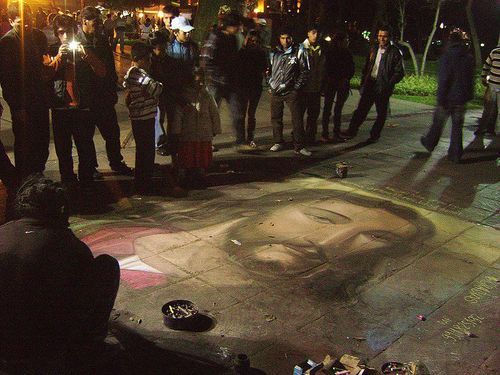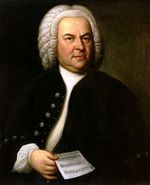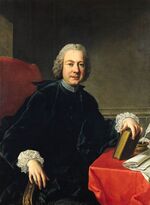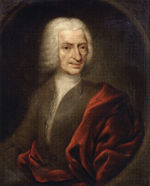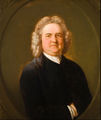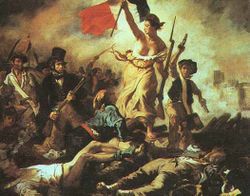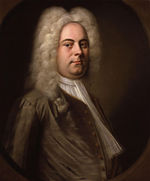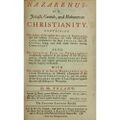Difference between revisions of "Category:Historical Jesus Studies--1700s"
(Created page with "thumb|200px|[[Johann Albert Fabricius]] * BACK to the HISTORICAL JESUS STUDIES--INDEX '''Historical Jesus Stud...") |
|||
| (45 intermediate revisions by the same user not shown) | |||
| Line 1: | Line 1: | ||
[[ | {| style="margin-top:10px; background:none;" | ||
| style="background:white; width:65%; border:1px solid #a7d7f9; vertical-align:top; color:#000; padding: 5px 10px 10px 8px; -moz-border-radius: 10px; -webkit-border-radius: 10px; border-radius:10px;" | | |||
<!-- ===================== COLONNA DI SINISTRA ==================== --> | |||
{| cellpadding="2" cellspacing="5" style="width:100%; vertical-align:top; background:transparent;" | |||
{{WindowMain | |||
|title= [[Historical Jesus Studies]] ([[1700s]]) | |||
|backgroundLogo= Bluebg_rounded_croped.png | |||
|logo= history.png | |||
|px= 38 | |||
|content= [[File:Jesus.jpg|500px]] | |||
The page: '''Historical Jesus Studies--1700s''' includes (in chronological order) scholarly and literary works in the field of [[Historical Jesus Studies]] made in the 18th century, or from 1700 to 1799. | |||
[[File:Johann Sebastian Bach.jpg|thumb|150px|[[Johann Sebastian Bach]]]] | |||
[[File:Pietro Metastasio.jpg|thumb|150px|[[Pietro Metastasio]]]] | |||
[[File:Hermann_Samuel_Reimarus.jpg|thumb|150px|[[Hermann Samuel Reimarus]]]] | |||
}} | |||
{{WindowMain | |||
|title= Highlights ([[1700s]]) | |||
|backgroundLogo= Bluebg_rounded_croped.png | |||
|logo = contents.png | |||
|px= 38 | |||
|content= | |||
* [[Matthäuspassion (1727 Bach), oratorio]] | |||
* [[La passione di Gesù Cristo (1730 Metastasio), libretto]] | |||
* [[The True Gospel of Jesus Christ Asserted (1738 Chubb), book]] | |||
* [[The Messiah (1742 Haendel / Jennens), oratorio]] | |||
* [[The Resurrection of Jesus (1743 Annet), book]] | |||
* [[Von dem Zwecke Jesu und seiner Jünger (On the Aim of Jesus and His Disciples / 1778 Reimarus / Lessing), book]] | |||
* [[Das Leben Jesu (Life of Jesus / 1795 Hegel), ms.]] | |||
}} | |||
== | {{WindowMain | ||
|title= [[Interpreters]] ([[1700s]]) | |||
|backgroundLogo= Bluebg_rounded_croped.png | |||
|logo = Logo.png | |||
|px= 38 | |||
|content= | |||
* [[Johann Sebastian Bach]] (1685-1750) | |||
* [[Georg Frideric Haendel]] (1685-1759) | |||
* [[Hermann Samuel Reimarus]] (1694-1768) | |||
* [[Thomas Chubb]] (1697-1747) | |||
* [[Pietro Metastasio]] (1698-1782) | |||
* [[Constantin-François Volney]] (1757-1820) | |||
* [[Georg Wilhelm Friedrich Hegel]] (1770-1831) | |||
<gallery> | |||
File:Thomas Chubb.jpg|[[Thomas Chubb]] | |||
File:Volney.jpg|[[Constantin-François Volney]] | |||
</gallery> | |||
}} | |||
|} | |||
|<!-- SPAZI TRA LE COLONNE --> style="border:5px solid transparent;" | | |||
<!-- ===================== COLONNA DI DESTRA ==================== --> | |||
| style="width:35%; border:1px solid #a7d7f9; background:#f5faff; vertical-align:top; padding: 5px 10px 10px 8px; -moz-border-radius: 10px; -webkit-border-radius: 10px; border-radius:10px;"| | |||
{| id="mp-right" cellpadding="2" cellspacing="5" style="width:100%; vertical-align:top; background:#f5faff; background:transparent;" | |||
{{WindowMain | |||
|title= [[Timeline]] ([[1700s]]) | |||
|backgroundLogo= Bluebg_rounded_croped.png | |||
|logo= history.png | |||
|px= 38 | |||
|content= [[File:French Revolution.jpg|thumb|left|250px]] | |||
'''[[Historical Jesus Studies]]''' : [[:Category:Historical Jesus Studies--2020s|2020s]] -- [[:Category:Historical Jesus Studies--2010s|2010s]] -- [[:Category:Historical Jesus Studies--2000s|2000s]] -- [[:Category:Historical Jesus Studies--1990s|1990s]] -- [[:Category:Historical Jesus Studies--1980s|1980s]] -- [[:Category:Historical Jesus Studies--1970s|1970s]] -- [[:Category:Historical Jesus Studies--1960s|1960s]] -- [[:Category:Historical Jesus Studies--1950s|1950s]] -- [[:Category:Historical Jesus Studies--1940s|1940s]] -- [[:Category:Historical Jesus Studies--1930s|1930s]] -- [[:Category:Historical Jesus Studies--1920s|1920s]] -- [[:Category:Historical Jesus Studies--1910s|1910s]] -- [[:Category:Historical Jesus Studies--1900s|1900s]] -- [[:Category:Historical Jesus Studies--1850s|1850s]] -- [[:Category:Historical Jesus Studies--1800s|1800s]] -- [[:Category:Historical Jesus Studies--1700s|1700s]] -- [[:Category:Historical Jesus Studies--1600s|1600s]] -- [[:Category:Historical Jesus Studies--1500s|1500s]] -- [[:Category:Historical Jesus Studies--1400s|1400s]] -- [[Historical Jesus Studies|Home]] | |||
'''[[Timeline]]''' : [[2020s]] -- [[2010s]] -- [[2000s]] -- [[1990s]] -- [[1980s]] -- [[1970s]] -- [[1960s]] -- [[1950s]] -- [[1940s]] -- [[1930s]] -- [[1920s]] -- [[1910s]] -- [[1900s]] -- [[1850s]] -- [[1800s]] -- [[1700s]] -- [[1600s]] -- [[1500s]] -- [[1450s]] -- [[Medieval]] -- [[Timeline|Home]] | |||
}} | |||
== | {{WindowMain | ||
|title= [[Languages]] | |||
|backgroundLogo= Bluebg_rounded_croped.png | |||
|logo= history.png | |||
|px= 38 | |||
|content= [[File:Languages.jpg|thumb|left|250px]] | |||
[[:Category:Historical Jesus Studies--English|English]] -- [[:Category:Historical Jesus Studies--French|French]] -- [[:Category:Historical Jesus Studies--German|German]] -- [[:Category:Historical Jesus Studies--Italian|Italian]] -- [[:Category:Historical Jesus Studies--Spanish|Spanish]] -//- [[Historical Jesus Studies|Other]] | |||
}} | |||
[[File:Georg Frideric Haendel.jpg|thumb|left|150px|[[Georg Frideric Haendel]]]] | |||
[[File:Georg Hegel.jpg|thumb|left|150px|[[Georg Wilhelm Friedrich Hegel]]]] | |||
|} | |||
|} | |||
== History of Research ([[1700s]]) -- Notes == | |||
Jesus remained an important subject in the arts, as attested especially by the production of numerous oratorios, including Bach's Matthäuspassion, Haendel's Messiah, and the many based on Metastasio's libretto, The Passion of Jesus Christ. In 1768 Scottish preacher [[John Cameron]] published what is regarded as the first modern novel on Jesus | |||
The Enlightenment brought about a more rationalistic approach to scriptures. The historical investigation of the origins of CHristianity began with the English deists. At the beginning of the 18th century [[John Locke]] and [[John Toland]] spoke of progressive stages in the teaching of Jesus and his apostles, identifying distinct layers of development within the New Testament. In 1738 [[Thomas Chubb]] asserted that one must distinguish between the teaching of Jesus and that of the Apostles who wrote the Gospels, while [[Thomas Morgan]] admitted that Paul and the other apostles might have "accommodated" Christ's doctrine to the conditions of their own different environment. The general attitude was to dismiss as irrational any eschatological or supernatural element. The possibility of miracles was openly rejected by [[Thomas Woolston]] in 1727-30; following his steps, [[Thomas Morgan]] denied that Jesus predicted his resurrection and [[Peter Annet]] dismissed the historicity of the event, formulating the hypothesis of an apparent death. From the writings of [[Voltaire]] comes the portrait of Jesus as the head of a new Jewish sect opposed to the others and a stronger emphasis on the eschatological elements in early Christianity. By the end of the century the idea emerged that the gospels might not have told the "true" story of Jesus. Maybe Jesus was a political revolutionary, whose failure prompted his reinterpretation as a religious figure (Hermann Samuel Reimarus), or maybe Jesus did not even exist and his biography was a completely mythological construct (Constantin-François Volney). | |||
The unpublished work of [[Georg Wilhelm Friedrich Hegel]] in 1795 shows how in light of Emanuel Kant's thought Jesus had become to be interpreted in German philosophical circles as a teacher of a morality founded on reason. | |||
Latest revision as of 06:07, 29 November 2019
History of Research (1700s) -- Notes
Jesus remained an important subject in the arts, as attested especially by the production of numerous oratorios, including Bach's Matthäuspassion, Haendel's Messiah, and the many based on Metastasio's libretto, The Passion of Jesus Christ. In 1768 Scottish preacher John Cameron published what is regarded as the first modern novel on Jesus
The Enlightenment brought about a more rationalistic approach to scriptures. The historical investigation of the origins of CHristianity began with the English deists. At the beginning of the 18th century John Locke and John Toland spoke of progressive stages in the teaching of Jesus and his apostles, identifying distinct layers of development within the New Testament. In 1738 Thomas Chubb asserted that one must distinguish between the teaching of Jesus and that of the Apostles who wrote the Gospels, while Thomas Morgan admitted that Paul and the other apostles might have "accommodated" Christ's doctrine to the conditions of their own different environment. The general attitude was to dismiss as irrational any eschatological or supernatural element. The possibility of miracles was openly rejected by Thomas Woolston in 1727-30; following his steps, Thomas Morgan denied that Jesus predicted his resurrection and Peter Annet dismissed the historicity of the event, formulating the hypothesis of an apparent death. From the writings of Voltaire comes the portrait of Jesus as the head of a new Jewish sect opposed to the others and a stronger emphasis on the eschatological elements in early Christianity. By the end of the century the idea emerged that the gospels might not have told the "true" story of Jesus. Maybe Jesus was a political revolutionary, whose failure prompted his reinterpretation as a religious figure (Hermann Samuel Reimarus), or maybe Jesus did not even exist and his biography was a completely mythological construct (Constantin-François Volney).
The unpublished work of Georg Wilhelm Friedrich Hegel in 1795 shows how in light of Emanuel Kant's thought Jesus had become to be interpreted in German philosophical circles as a teacher of a morality founded on reason.
Pages in category "Historical Jesus Studies--1700s"
The following 80 pages are in this category, out of 80 total.
1
- Harmonia Evangelica, cui subjuncta est Historia Jesu Christi ex quatuor Evangeliis concinnata (1700 LeClerc), book
- Passion nach Matthäus (St. Matthew Passion / 1700 Meder), oratorio
- La sepoltura di Cristo (1704 Predieri / Mazzoni), oratorio
- La resurrezione (The Resurrection / 1708 Haendel / Capece), oratorio (music & libretto), Rome premiere (cast)
- Wårs Herres och Frälsares Jesu Christi alldraheligaste pijons historia (The Most Holy Martyrdom of Our Lord and Savior Jesus Christ / 1710 Brenner), poetry
- Der für die Sünde der Welt gemarterte und sterbende Jesus (The Story of Jesus, Suffering and Dying for the Sins of the World / 1712 Brockes), libretto
- Cristo nell’orto (Christ in the Garden / 1718 Fux / Pariati), oratorio
- Il re del dolore (1722 Caldara / Pariati), oratorio
- Das Lied des Lammes (The Song of the Lamb / 1723 Mattheson / Postel), oratorio
- (++) Johannespassion (St. John Passion / 1724 Bach), oratorio
- Morte e sepoltura di Cristo (1724 Caldara / Fozio), oratorio
- Il testamento di nostro Signore Gesù Cristo sul Calvario (1726 Fux / Pariati), oratorio
- (++) Matthäuspassion (St. Matthew Passion / 1727 Bach), oratorio
- Trattenimento istorico teologico, e scritturale sopra i Santi Vangeli (Historical, Theological and Scriptural Treatise on the Holy Gospels / 1727 Calino), book
- Discourses on the Miracles of Our Saviour (1727-30 Woolston), book
- La circoncisione del santo bambino Gesù (1729 Chiocchetti), oratorio
- La passione di Gesù Cristo (The Passion of Jesus Christ / 1730 Caldara / @1730 Metastasio), oratorio (music), Vienna premiere
- La passione di Gesù Cristo (The Passion of Jesus Christ / 1730 Metastasio), libretto (oratorio)
- La passione di Gesù Cristo (The Passion of Jesus Christ / 1733 Sodi / @1730 Metastasio), oratorio (music), Montefiascone premiere
- Gesù presentato nel Tempio (1735 Caldara / Zeno), oratorio
- La passione di Gesù Cristo (The Passion of Jesus Christ / 1735 Gregori / @1730 Metastasio), oratorio (music), Lucca premiere
- La passione di Gesù Cristo (The Passion of Jesus Christ / 1735 Venturelli / @1730 Metastasio), oratorio (music), Modena premiere
- Gesù al Calvario (1735 Zelenka / Boccardi), oratorio
- La passione di Gesù Cristo (The Passion of Jesus Christ / 1737 Sarro / @1730 Metastasio), oratorio (music), Rome premiere
- The True Gospel of Jesus Christ Asserted (1738 Chubb), book
- La passione di Gesù Cristo (The Passion of Jesus Christ / 1739 Conti / @1730 Metastasio), oratorio (music), Naples premiere
- (++) The Messiah (1742 Haendel / Jennens), oratorio
- La passione di Gesù Cristo (The Passion of Jesus Christ / 1742 Perez / @1730 Metastasio), oratorio (music), Palermo premiere
- La passione di Gesù Cristo (The Passion of Jesus Christ / 1743 Basili / @1730 Metastasio), oratorio (music), Recanati premiere
- La passione di Nostro Signor Gesù Cristo (1745 Brunassi), play
- La Passione di Nostro Signore Gesù Cristo (1745 Sellitto), oratorio
- Der Messias (The Messiah / 1748-73 Klopstock), poetry
- La passione di Gesù Cristo (The Passion of Jesus Christ / 1749 Cornaro / @1730 Metastasio), oratorio (music), Rome premiere
- La passione di Gesù Cristo (The Passion of Jesus Christ / 1749 Jommelli / @1730 Metastasio), oratorio (music), Rome premiere
- La passione di Gesù Cristo (The Passion of Jesus Christ / 1754 Holzbauer / @1730 Metastasio), oratorio (music), Mannheim premiere
- Life of Our Lord and Saviour, with the Lives of the Apostles and Evangelists (1754 Stackhouse), book
- Der Tod Jesu (The Death of Jesus / 1755 Graun / @1755 Ramler), oratorio
- (+) Der Tod Jesu (The Death of Jesus / 1755 Ramler), libretto
- Der Tod Jesu (The Death of Jesus / 1755 Telemann / @1755 Ramler), oratorio
- La Passione di Nostro Signor Gesù Cristo (1756 Feroci / Metastasio), oratorio
- Vita di nostro signore Gesù Cristo (Life of Our Lord Jesus Christ / 1761 Massini), book
- La passione di Gesù Cristo (The Passion of Jesus Christ / 1762 Vannucci / @1730 Metastasio), oratorio (music), Lucca premiere
- La passione di Gesù Cristo (The Passion of Jesus Christ / 1767 Naumann / @1730 Metastasio), oratorio (music), Padua premiere (cast)
- Colección de varias historias (1767-1768 Santos Alonso), novel
- The Messiah (1768 Cameron), novel
- La passione di Gesù Cristo (The Passion of Jesus Christ / 1770 Kühl / @1730 Metastasio), oratorio (music), Hamburg premiere
- La passione di Gesù Cristo (The Passion of Jesus Christ / 1772 Sales / @1730 Metastasio), oratorio (music), Ehrenbreitstein premiere
- La passione di Gesù Cristo (1773 Myslivecek / Metastasio), oratorio
- La passione di Gesù Cristo (The Passion of Jesus Christ / 1773 Mysliveček / @1730 Metastasio), oratorio (music), Florence premiere
- La Passione di nostro Signore Gesù Cristo (The Passion of Jesus Christ / 1775 Crispi / @1730 Metastasio), oratorio (music), Rome premiere
- Synopsis Evangeliorum Matthaei, Marci et Lucae (1776 Griesbach), book
- De sermonibus Christi agraphois (1776 Körner), book
- Der Tod Jesu (The Death of Jesus / 1776 Kraus / @1755 Ramler), oratorio
- La passione di Gesù Cristo (The Passion of Jesus Christ / 1776 Luchesi / @1730 Metastasio), oratorio (music), Bonn premiere
- La passione di Gesù Cristo (The Passion of Jesus Christ / 1776 Uttini / @1730 Metastasio), oratorio (music), Stockholm premiere
- La Passione di nostro Signore Gesù Cristo (The Passion of Jesus Christ / 1777 Salieri / @1730 Metastasio), oratorio (music), Vienna premiere (cast)
- La passione di Gesù Cristo (The Passion of Jesus Christ / 1778 Schuster / @1730 Metastasio), oratorio (music), Dresden premiere
- La passione di Gesù Cristo (The Passion of Jesus Christ / 1778 Starzer / @1730 Metastasio), oratorio (music), Vienna premiere
- La passione di Gesù Cristo (The Passion of Jesus Christ / 1780 Majo / @1730 Metastasio), oratorio (music), Bologna premiere
- La passione di Gesù Cristo (The Passion of Jesus Christ / 1783 Paisiello / @1730 Metastasio), oratorio (music), St. Petersburg premiere
- Ausfuhrung des Plans und Zwecks Jesu (1784-1792 Bahrdt), book
- La passione di Gesù Cristo (The Passion of Jesus Christ / 1784 Reichardt / @1730 Metastasio), oratorio (music), Berlin premiere (cast)
- Histoire de la vie de Jesus-Christ (The Life of Jesus Christ / 1786-88 Compans), book
- La passione di Gesù Cristo (The Passion of Jesus Christ / 1786 Prati / @1730 Metastasio), oratorio (music), Florence premiere
- La passione di Gesù Cristo (The Passion of Jesus Christ / 1787 Torelli / @1730 Metastasio), oratorio (music), Bologna premiere
- La passione di Gesù Cristo (The Passion of Jesus Christ / 1787 Zingarelli / @1730 Metastasio), oratorio (music), Milan premiere
- La passione di Gesù Cristo (The Passion of Jesus Christ / 1788 Spontoni / @1730 Metastasio), oratorio (music), Bologna premiere
- La passione di Gesù Cristo (1789 Andreozzi), oratorio
- La passione di Gesù Cristo (The Passion of Jesus Christ / 1790 Guglielmi / @1730 Metastasio), oratorio (music), Madrid premiere
- Les ruines; ou, Méditation sur les révolutions des empires (1791 Volney), book
- La passione di Gesù Cristo (The Passion of Jesus Christ / 1792 Mattei / @1730 Metastasio), oratorio (music), Bologna premiere
- Origines de tous les cultes; ou, Religion universelle (1794 Dupuis), book
- La passione di Gesù Cristo (The Passion of Jesus Christ / 1794 Mortellari / @1730 Metastasio), oratorio (music), London premiere
- Die sieben letzten Worte unseres Erlösers am Kreuze (1796 Haydn / Friebert, Swieten), oratorio
- La passione di Gesù Cristo (The Passion of Jesus Christ / 1799 Nicolini / @1730 Metastasio), oratorio (music), Naples premiere
- La passione di Gesù Cristo (1799 Nicolini), oratorio
Media in category "Historical Jesus Studies--1700s"
The following 4 files are in this category, out of 4 total.
- 1718 Toland.jpg 500 × 500; 135 KB
- 1743 Annet.jpg 384 × 499; 31 KB
- 1778 * Reimarus - Lessing.jpg 1,000 × 1,666; 556 KB
- 1795 * Hegel.jpg 320 × 500; 21 KB
